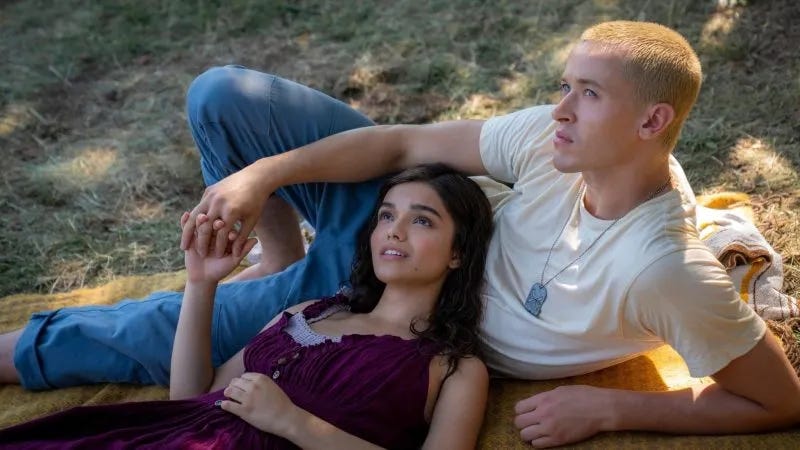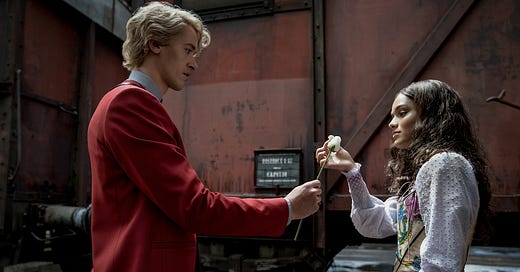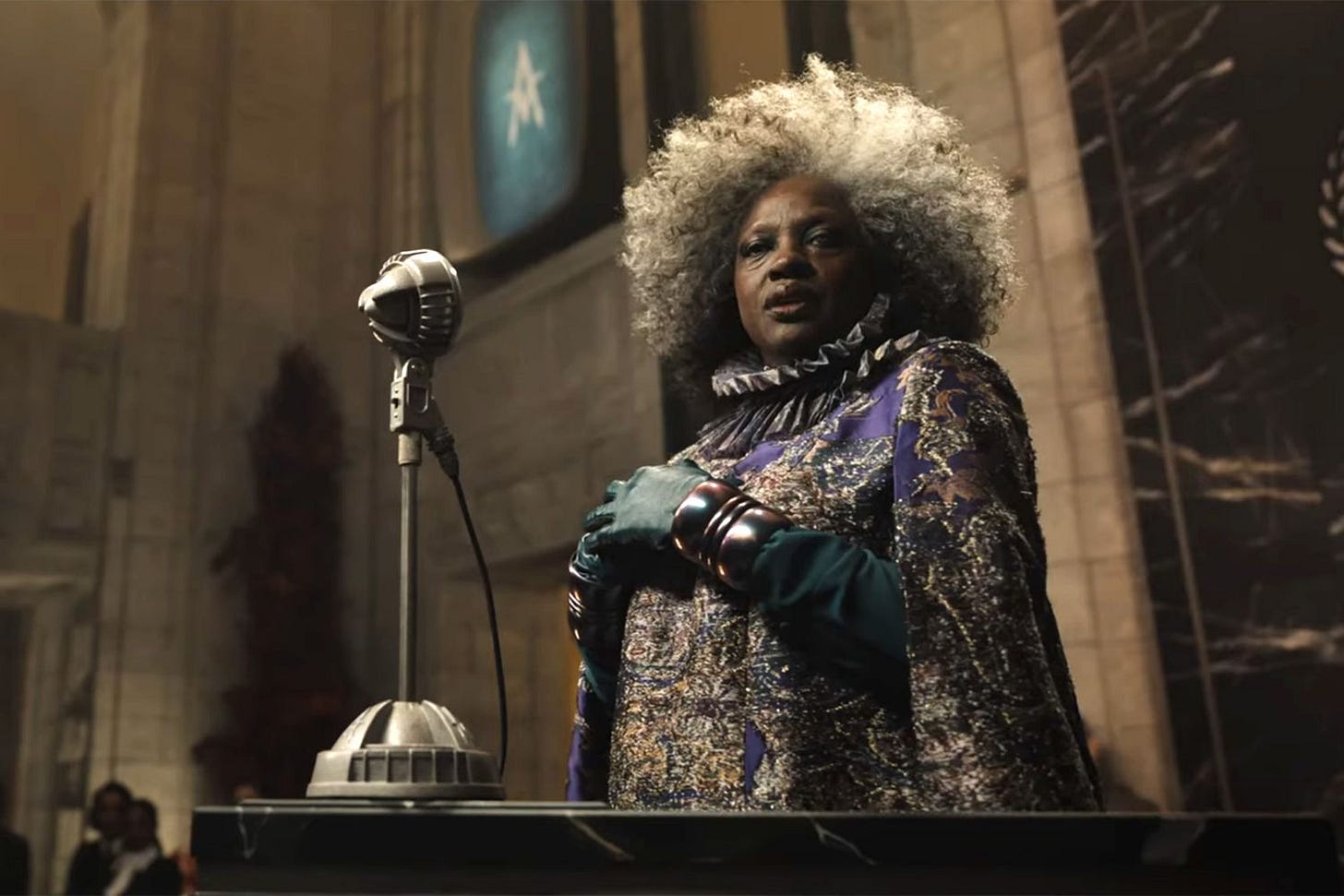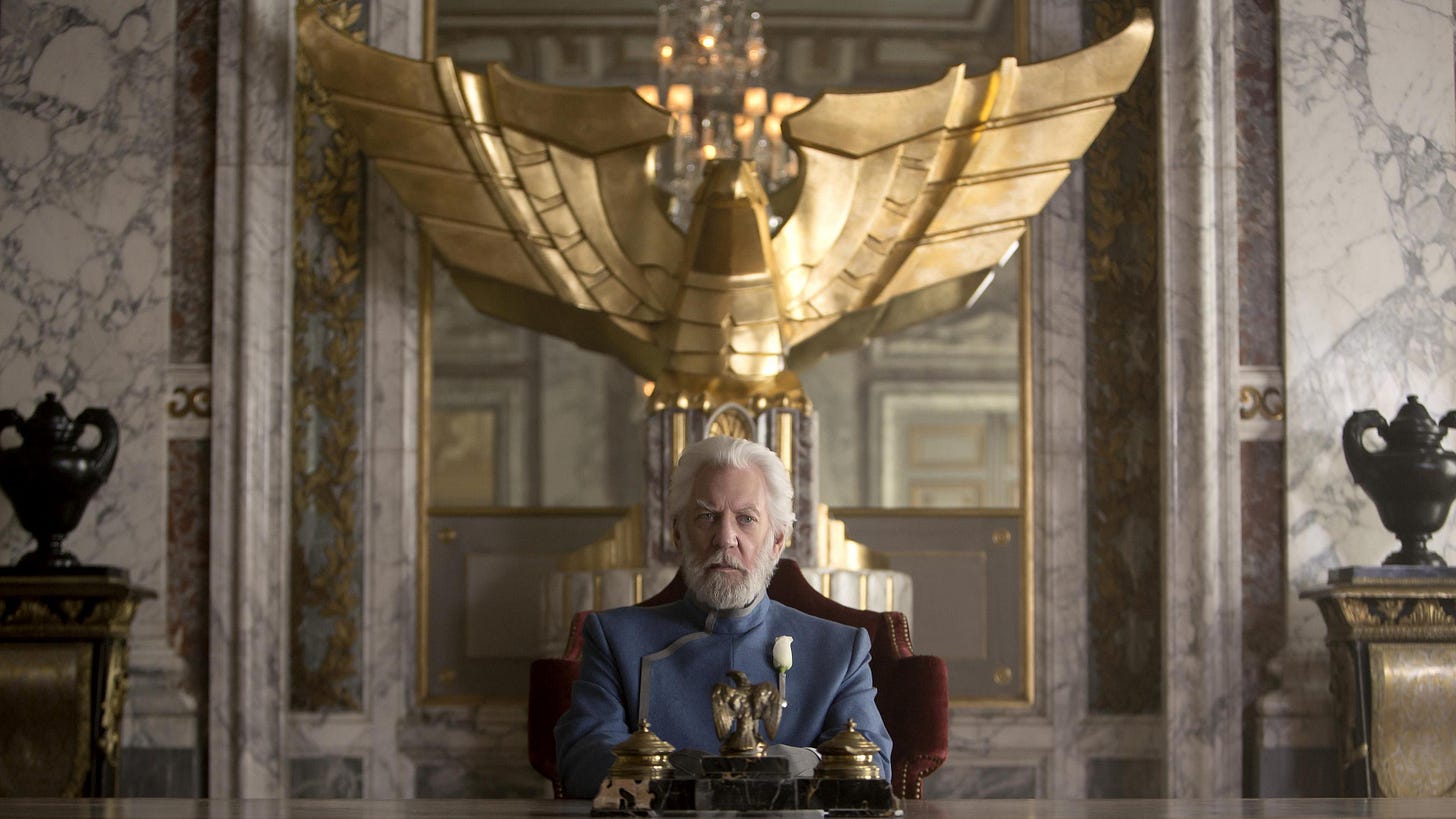Human Lens #130: 'The Hunger Games: The Ballad of Songbirds & Snakes' Review
A prequel that unapologetically subverts expectations
The Hunger Games saga is not the love triangle of empty nonsense that outsiders to the series may believe it is with how much the fandom obsessively debates who series main character Katniss Everdeen should have been with. At its core, author Suzanne Collins uses the trilogy as a jarring analysis of the human condition and how violence forces us to do terrible things that are argued and relegated through stark justification, making those who care the lesser for their opinions. For a series that was written for the young adult demographic, there’s no way those themes haven’t scarred readers to this day, leading them to question every international headline and domestic political maneuver from their elected officials — those readers that dug deeper than the love triangle that is. So it should come as no surprise that Collins’ prequel novel, The Ballad of Songbirds and Snakes, would strike a similar chord by creating more memorable moments and posing even more questions for fans of her writing. And to even less surprise, after the box office success of the first four films, Lionsgate jumped on the opportunity to make another film before it was even released.

Now three years removed from the release of the novel, The Hunger Games: The Ballad of Songbirds and Snakes has released on the big screen from director Francis Lawrence, who also helmed Catching Fire and both parts of Mockingjay for the franchise. 64 years before Katniss Everdeen donned a bow and arrow in the Hunger Games, unknowingly stoking the fires of revolution, a young Coriolanus Snow, who we will one day know as President of Panem, navigates around his fading familial legacy. Coriolanus and his fellow classmates are assigned to be mentors to the tributes of the 10th Annual Hunger Games where he is begrudgingly assigned the District 12 tribute, Lucy Gray Baird. Upon meeting, the two slowly realize that sharing their instincts of political prowess and showmanship can help them both win come the end of the games. And as romantic tension forms between the two, there may be more on the line than just fun and games.
The Hunger Games prequel takes a page out of another famous franchise’s book, Star Wars, as it takes a well established villain and makes him a good guy whose worldview is persuaded and corrupted by fascist ideologies and lifestyles. There’s a certain art to the prequel story that I find to be completely underrated. While there are many things that would be cool to see, especially in a sci-fi world like this, it takes a true artist to find a story to tell for a character in congruence with the story the author or filmmaker wants to tell. This is how prequels heighten the original source material, and Collins did a brilliant job with this one. The trials of Coriolanus make us question how we view others, second guessing judging someone without being in their shows or understanding where they’ve come from. It seems more believable for someone to have a fascist viewpoint of the world when they witnessed a lavish lifestyle the comfort that come with it be taken from them through violence. Instead of doubling down on what makes him an enemy, this story paints him in a tragic light.
The film’s greatest strength is the widely talented cast that they acquired to play these characters. Peter Dinklage and Viola Davis are special character actors to snag for any film, but nabbing them both shows how special the source material is. Dinklage gives a subdued yet layered turn as the Dean of Coriolanus’ school, while Davis adds yet another wacky and perfectly cheesy performance as head gamemaker Dr. Gaul. Their impact on Coriolanus is extremely important throughout the film and adds more context to future films and the history of the world this story takes place in.

But it’s the younger cast that really solidifies themselves here, especially in the shadow of what Jennifer Lawrence did before them. In just her third feature film (and she’s been the best part of all three of them), Rachel Zegler solidifies herself as a superstar scene stealer as the mysterious, flirtatious, and musically talented Lucy Gray Baird. Zegler’s camera presence is incredible for someone so young with a history on the stage. Combined with that, her singing voice is nothing short of extraordinary, pushing for the musical acts in the film to be recorded live on set to add to the immersion. But while Zegler is the standout, Tom Blyth’s quiet demeanor adds to his character’s carefully executed decision making and self-centeredness. You believe everything the character cares about, from his family, to winning the games, to Lucy Gray. Plus, when emotions run really high, Blyth is able to go to another level here that not a lot of young actors can get to. I mean, that scene in the forest near the end?… perfection. These are two stars in the making that we’ll be seeing for years to come, along with some other younger actors from the supporting cast.
But every book adaptation, unless we’re talking about a special circumstance, has trouble translating everything from the page to the screen. Sometimes there’s just too much content in a novel to convey in an acceptable theatrical time for the audience you’re trying to attract. This was a very heavy problem here, as The Ballad of Songbirds and Snakes has to condense a 528 page book (the longest of the series) into a runtime that a young adult audience would be willing to see. Many minute details are moved through quickly in the final cut of the movie, and many scenes fail to follow the '“show don’t tell” rule of filmmaking, with many characters just launching into expository dialogue that’s either unnecessary or awkwardly prompted. On top of this, the third act is already a jarring subversion of expectations, which is only hindered here by its rushing of the events that take place during it. In the film’s defense, that third and final act had a lot of internal dialogue from the main character that is virtually impossible to convey on screen. If this was about 5-10 minutes longer on the already lengthy screen time, I feel that a lot of these scenes could have had room to breathe and add more emotional tension that was missing.
The Ballad of Songbirds and Snakes will come as a great surprise to longtime fans and casual enjoyers of these films. Taking a page out of Star Wars’ book, it makes you feel sympathy through charting the origins of a famous villain, but doesn’t take away from what makes the evil in the long run. Francis Lawrence and the entire production team put together another rousing epic of political intrigue with amazing set design and seat gripping action and romantic tension that have become a staple of these films. I think viewers who read the book going in will enjoy it more, especially since the third act is hard to convey for people who didn’t read it. However, this doesn’t set the film back at all and is a welcome surprise for a return journey to Panem that some people were wary about.





